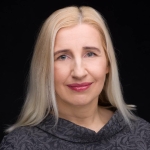
ongoing
MINTEMigrants' Integration Through Education

principal investigator / project leader
sociologist, specializing in research on migration, national identity and placeh
Full bio project value: PLN 1,195,524 (EUR 250,000)
funding source: European Commission
discipline: sociology
location: Warsaw
duration: 2022 2023 2024 2025
Mass migrations due to wars, poverty, and climate change have been a frequent phenomenon in the 21st century. Receiving countries face multiple challenges in communicating with newly arrived refugees from different countries, which hinders provision of necessary services. A consortium of European and Israeli research institutions will examine how different countries organize support and communication channels for displaced people arriving on their territory and will develop tools and recommendations for more efficient services.
Project Objectives
Project MINTE will examine the situation of migrants (especially Ukrainians in refugee-like situations) in receiving countries. The goal of this international project is to facilitate the development of workable integration policies by municipalities in Poland and the Czech Republic and to monitor and learn from good practices related to migrant integration in other European countries and in Israel. In addition, researchers will develop a multimedia course on international migration that will mainly focus on Central Europe. A broader investigation of digital skills among migrants will also be carried out to understand how municipalities could provide information and communicate with migrants in the most efficient way.
The project will be carried out by a consortium including the following research institutions:
This project will allow us to analyze the types of help offered to migrants by public administrations, municipalities and various organizations. We will also learn how migrants obtain information about the help offered to them. Thanks to this, we will know how help is organized and how to help migrants more effectively.

Bielewska, Agnieszka
Principal Investigator
Specialization
sociologist, specializing in research on migration, national identity and placeh
First and last name
Agnieszka Bielewska
Academic degree or title
Ph.D.
Role in the Department
[]
Role in the Research Center
[]
Ph.D. Agnieszka Bielewskasociologist, specializing in research on migration, national identity and placeh
Methodology
Research methods will include interviews with migrants and experts. The researchers will also organize a LAB of experts to discuss proposed solutions.
Research team

Bielewska, Agnieszka
research lead of the team from SWPS University
Specialization
sociologist, specializing in research on migration, national identity and placeh
First and last name
Agnieszka Bielewska
Academic degree or title
Ph.D.
Role in the Department
[]
Role in the Research Center
[]
Ph.D. Agnieszka Bielewskasociologist, specializing in research on migration, national identity and placeh
Practical application of results
Data collected during the project will lead to the following results:
- The innovative multimedia course on international migration, in particular in Central Europe, will be developed by the researchers and disseminated among institutions that frequently deal with migrants, universities, prospective university students, and the general public.
- The project will gather data on migrants' digital skills and communication channels they use. This data will be analyzed and the researchers will formulate recommendations on what channels of communication work best in practice. A digital application will be built in Poland to facilitate popularization of these recommendations and learning about the needs of migrants.
- Finally, national integration models will be analyzed and compared to understand how migrant integration works in different countries. Solutions and good practices will be shared with local stakeholders, who will be encouraged through networking events to work more closely and efficiently together.